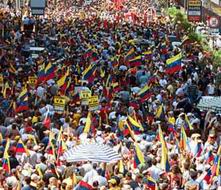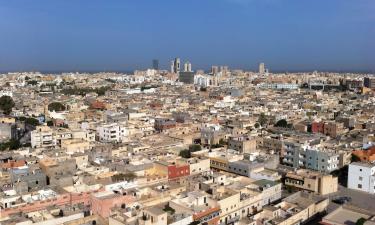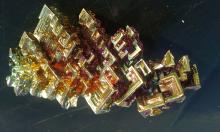Massive rallies anticipate Chavez’s victory on Sunday referendum
 Massive rallies anticipate Chavez’s victory on Sunday referendum
Massive rallies anticipate Chavez’s victory on Sunday referendum
Hundreds of thousands of Venezuelans marched on Sunday to support president Hugo Chavez a week before facing a recall vote.
Observers from all over the world are arriving in Caracas to overview the electoral process.
Sunday’s massive demonstrations in support of Hugo Chavez, may have anticipated the results of the incoming August 15 recall vote by which the opposition, that has lost the political initiative some weeks ago, expects to put an end to the popular leadership of Venezuela’s constitutional president. Hundreds of thousands of Venezuelans, mostly from the “toiling classes”, flooded Caracas in a huge show of support for Chavez, as prepare for a stunning victory in a referendum that was aimed to overthrow him, even when the outcome of the recall vote is too close to call.
Wearing red, the symbol of Chavez's democratic revolution, the president's supporters overflowed a central avenue where he was due to address the crowd. Many were bused in from outside the capital. Slogans on the demonstrators' banners, T-shirts and caps urged Venezuelans to "Vote No" to oppose the recall of the man that for the first time in decades learned to express the feelings of Venezuela’s poor majority.
At the same time, the opposition called on a candlight march that only gathered a few thousands from the accomodated classes. Since Chavez accepted to go to a recall referendum, the opposition lost the political initiative and could never get it back.
Since former Colonel Chavez was elected to rule Venezuela in 1998, he managed to get the support from the toiling classes thanks to a mix of charisma and well designed social plans that benefited country’s poor majority. At the same time, Chavez did the battle to national and multinational monopolies in Venezuela resisting all actions taken to force a privatization of the national oil giant, PDVSA.
This policy brought him furious political foes that aimed to overthrow him by the use of fore twice. The first one in a military coup preceded by lock outs and the mobilization of the middle class. After the failed coup of April 2002, the opposition steamed up tensions leading to a two months general strike aided by the conservative unions federation, but again failed to oust him.
In June, the opposition managed to collect 2.4 million signatures that constitutionally allowed them to call on a recall vote on presidential mandate. It is, indeed, their last opportunity until December 2006 elections to vote out a president they vilify as a fledgling dictator leading Venezuela to Cuba-style communism and economic ruin.
In fact, a recall vote has been also fueled by world leaders that the referendum will resolve Venezuela's political crisis, which has helped push up oil prices. But some observers fear a close vote will worsen the political polarization that has kept the nation in turmoil. Over the past three years, dozens of people have been killed in sporadic political violence that included a short-lived 2002 coup.
In Washington things are more clear, the two versions of power in the White House, either the actual in Bush hands, or the eventual in Kerry’s leadership, believe they will have a better relationship with one of their most important oil suppliers if Chavez loses. However, it is not clear how the opposition will obtain the 3.76 million votes needed to make them things easier.
Hernan Etchaleco
Subscribe to Pravda.Ru Telegram channel, Facebook, RSS!




